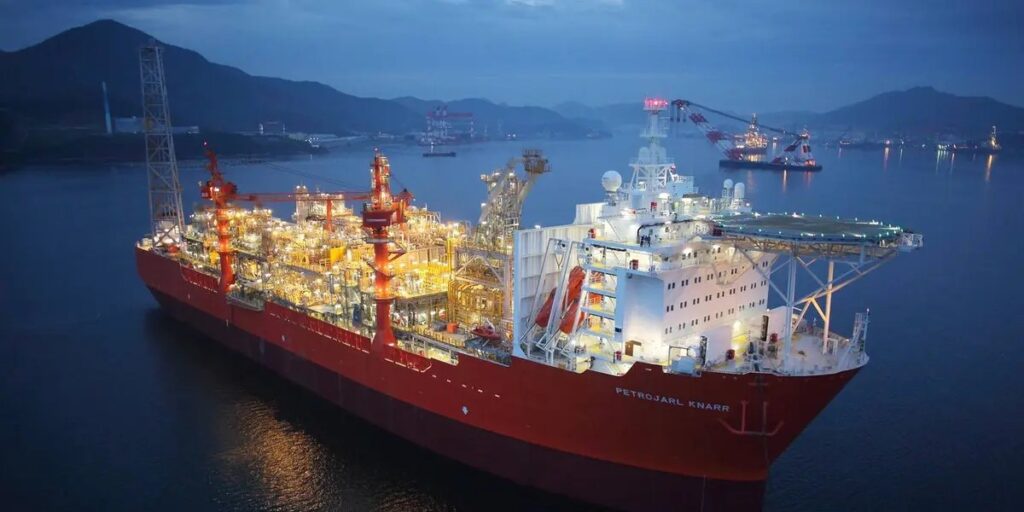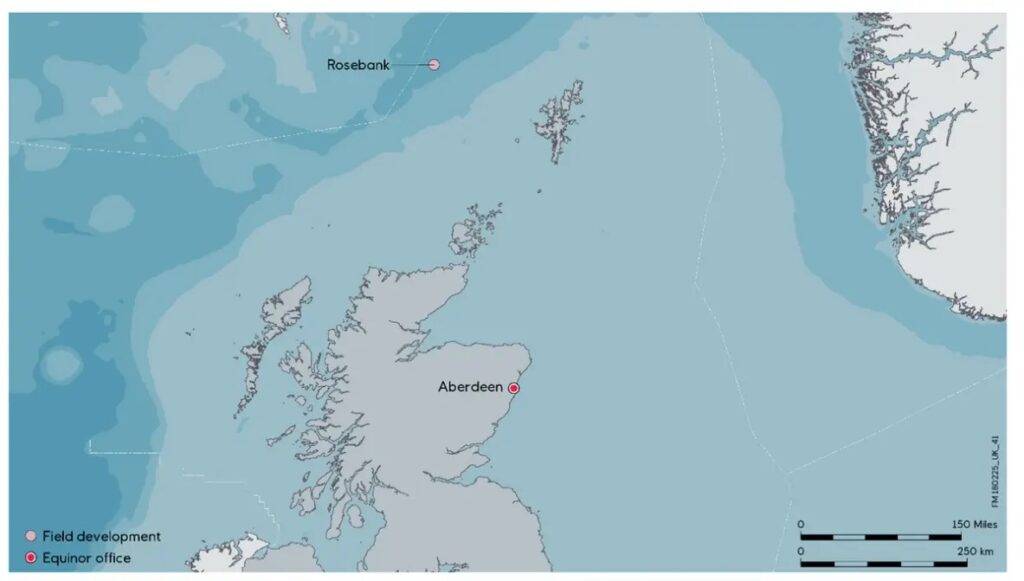Fossil Energy – Rosebank Development
Equinor and Ithaca Energy have taken the final investment decision to progress Phase 1 of the Rosebank development on the UK Continental Shelf (UKCS), investing USD 3.8 billion.

The North Sea Transition Authority (NSTA) granted consent for the development of the field on 27 September.
“Developing the Rosebank field will allow us to grow our position as a broad energy partner to the UK, while optimising our oil and gas portfolio, and increasing energy supply in Europe. Rosebank provides an opportunity to develop a field within the UK Continental Shelf which will bring significant benefits to Scotland and the wider UK,” says Geir Tungesvik, executive vice president Projects, Drilling and Procurement at Equinor.
The Rosebank field is located around 130 kilometres north-west of Shetland in approximately 1,100 metres of water depth. Total recoverable resources are estimated at around 300 million barrels of oil, with Phase 1 targeting estimated 245 million barrels of oil.
The field will be developed with subsea wells tied back to a redeployed Floating Production Storage and Offloading vessel (FPSO), with start-up planned in 2026-2027. Oil will be transported to refineries by shuttle tankers, while gas will be exported through the West of Shetland Pipeline system to mainland Scotland.
“We are pleased to move forward with the Rosebank field together with Ithaca Energy,” says Philippe Mathieu, executive vice president for Exploration and Production International.
“This development further strengthens our international business, and we look forward to collaborating closely with our partner and suppliers to develop and operate Rosebank with the lowest possible carbon footprint while bringing the maximum value to society in the shape of UK investment, local jobs and energy security,” says Mathieu.

The Rosebank oil and gas field is being developed in compliance with the North Sea Transition Deal, an agreement between the UK government and the offshore industry. It acknowledges that whilst there is a continued, though over time reducing need for oil and gas, the remaining demand for oil and gas must be met with the lowest emissions possible.
The FPSO has been designed to be electrification-ready and Equinor is collaborating with government and industry to pursue a regional solution for power from shore to Rosebank and nearby fields to minimise carbon emissions from production.
